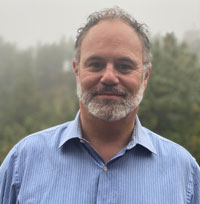Letter from Editor
Dear Colleagues,
Those reliable harbingers of early spring, the bright yellow blooms of the forsythia, have begun to dot the landscape out here in suburban Long Island as I write this from the final week of March. Yet the winter of our discontent continues remorselessly here in the States, as our worst nightmares about our president’s capacity for destruction are daily outstripped by the blunt reality of his and his administration’s cruelty, inhumanity, lies, wanton disrespect, cowardice, shamelessness, blundering, and related displays of malignant narcissism. It is hard to watch, and hard to look away. Democracies around the world are sustaining body blows to their body politic, and these blows are often self-inflicted ones. We vote these despots into office.
Yet I speak out of turn. Not all psychoanalysts share my politics, even though it seems that most do. Slipping so easily into the paranoid-schizoid position of us/them and self-righteous condemnation only further entrenches political polarity and renders yet another site threatening to free discourse. These intense differences play out not only in our discussions with colleagues but in our consulting rooms as well. Over the years I’ve heard of very few instances where overtly acknowledged political differences in the analytic dyad did not derail (i.e., end) the treatment, and the few cross-political treatments that did survive an initial period of upheaval petered out within a year or so. The intense threat to identity, the failure of recognition, the specter of judgment and rejection, prove to be too discomfiting, too unsafe to sustain.
When contemplating these clashes and wondering whether an analytic third can be co-constructed and sustained across the chasm of opposing political positions, I often think of this statement, a poignant expression of the limits of a tolerant, let alone mutually embracing, stance:
“We can disagree and still love each other unless your disagreement is rooted in my oppression and denial of my humanity and right to exist.”
(This quotation, often incorrectly attributed to James Baldwin, comes from black American novelist and essayist Robert Jones Jr. (2005), who used to post to Twitter using the handle @sonofbaldwin.)
If these matters animate, fascinate, infuriate, or feel like they may obliterate you, I remind you that the theme of our upcoming Annual Conference, “The Paradox of Freedom in Relational Psychoanalysis: Democracy and Tyranny In and Out of Therapy,” will offer numerous opportunities to engage intellectually, interpersonally, clinically, and emotionally with a wide range of complex and thorny questions surrounding such elastic concepts as liberty, plurality, autocracy, freedom, and self-determination.
Where better to set such a conference than in Athens, Greece, the founding site of democracy, and the site of its first immolation as well. I hope you will join us June 19 – 22, in Athens. Or, if you cannot attend in-person, you may wish to livestream the plenaries. The topics, presenters, and summaries of the five plenaries, along with all the registration information, can be found here.
In addition to a range of reports from IARPP’s various committees, this issue of the Bulletin marks the return of our chapter reports. The Chapters Committee has exciting news to share with the entire IARPP community.
* * *
If you would like the next IARPP Bookshelf to include news of your recent publications and/or presentations, please send the following materials to me at mattaibel@gmail.com by Sunday, May 25, 2025:
- Title of your recent or upcoming publication(s)/presentation(s) (We do not include announcements of IARPP Conference presentations.)
- An abstract or brief description of the content (around 150 words)
- Link to a publisher, if applicable, so that members might access or purchase a copy
- Book cover photo or artwork, if applicable
- Digital photograph of yourself (jpeg format)
- Professional contact information as you would like it to appear publicly (city/town in which you practice or work and your email address)
- Book authors, please provide a brief bio (75-90 words)
- Presenters, please spell out organizational acronyms and include the location, if in-person
Best wishes,
Matt Aibel, LCSW
IARPP Bookshelf Editor

Matt Aibel, LCSW
New York, NY, USA
Email Matt Aibel

